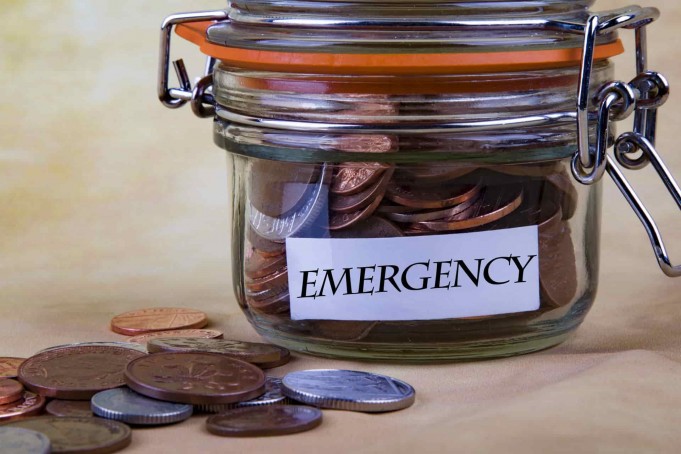Budget for an Emergency Fund
With the growing financial crises of recent times, cutting the costs of every aspect of our lives is elementary. Numerous adults are battling with rising gas prices, unemployment, and debts. Allocating an emergency fund is vital for battling life’s unexpected events. These could be accidents, hospital visits, or even natural disasters. The sole reason that emergency funds are vital is the fact that you cannot foresee your future. Emergency funds are guaranteed to help you out during the time’s unexpected financial emergencies.
Size of Emergency Funds
A starter emergency fund could be as small as $1,000 in the beginning. While determining the size of your emergency funds, you should consider factors such as income levels, number of earning members in your family, and the stability of your current job.
If you are in a debt, it is recommended to keep the emergency fund at $1,000 until you clear the debt. Getting rid of bad debts such as personal loans, credit cards, and anything else with an interest rate of more than 7% is advised before you start off with emergency funds. Once you have cleared the debt, you can increase the savings that is equipped to cover you the expenses of three to six months. It is highly recommended to generate a six-month emergency fund in case of someone in your family suffers from a medical condition that is chronic.
Creating a Budget
One way to find out the amount you would be able to allocate to your emergency fund is by creating a budget. List out your expenses and monthly income. After learning your budget thoroughly, you will be able to decide a monthly amount to allocate to your emergency fund. Set aside the previously decided amount each month. Continue building your emergency fund and always remember that consistency is key.
Also, you could increase the amount that you are saving in tandem with your salary hikes. More income means the more you could save each month. You could also work on some part-time jobs to earn some extra money.
Emergency funds could be kept in a money market account. Another alternative is to keep your emergency fund in a high yield savings account. High yielding accounts provide you an additional advantage of interest. The interest that you earn may not be high but it could help, too. It is recommended to keep your emergency fund in a different bank account from your main bank accounts.
The budget could be met by cutting out all of your unnecessary expenses. Spending less on luxury commodities, negotiating for
cheapest prices, and cutting back on entertainment expenses are recommended. Using public transport could also save money for your budget. You could sell things that are no longer used to bring in some cash as well. Many online services could be made use of to sell used products. Craigslist, Facebook Marketplace, and eBay are some of the popularly used services.
If you do not have an emergency fund, don’t worry. Start building one today.









